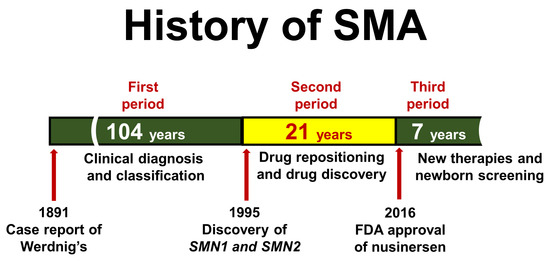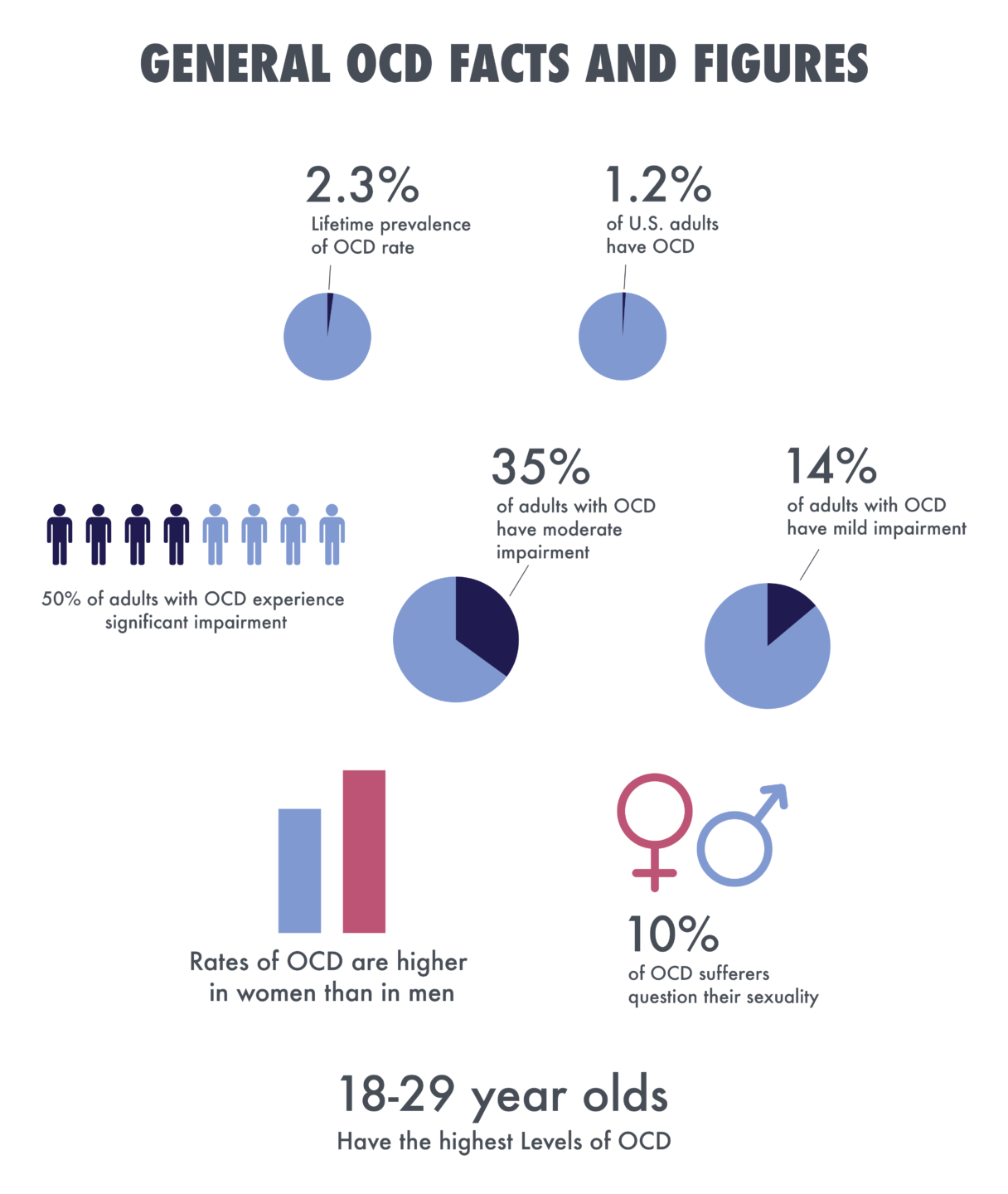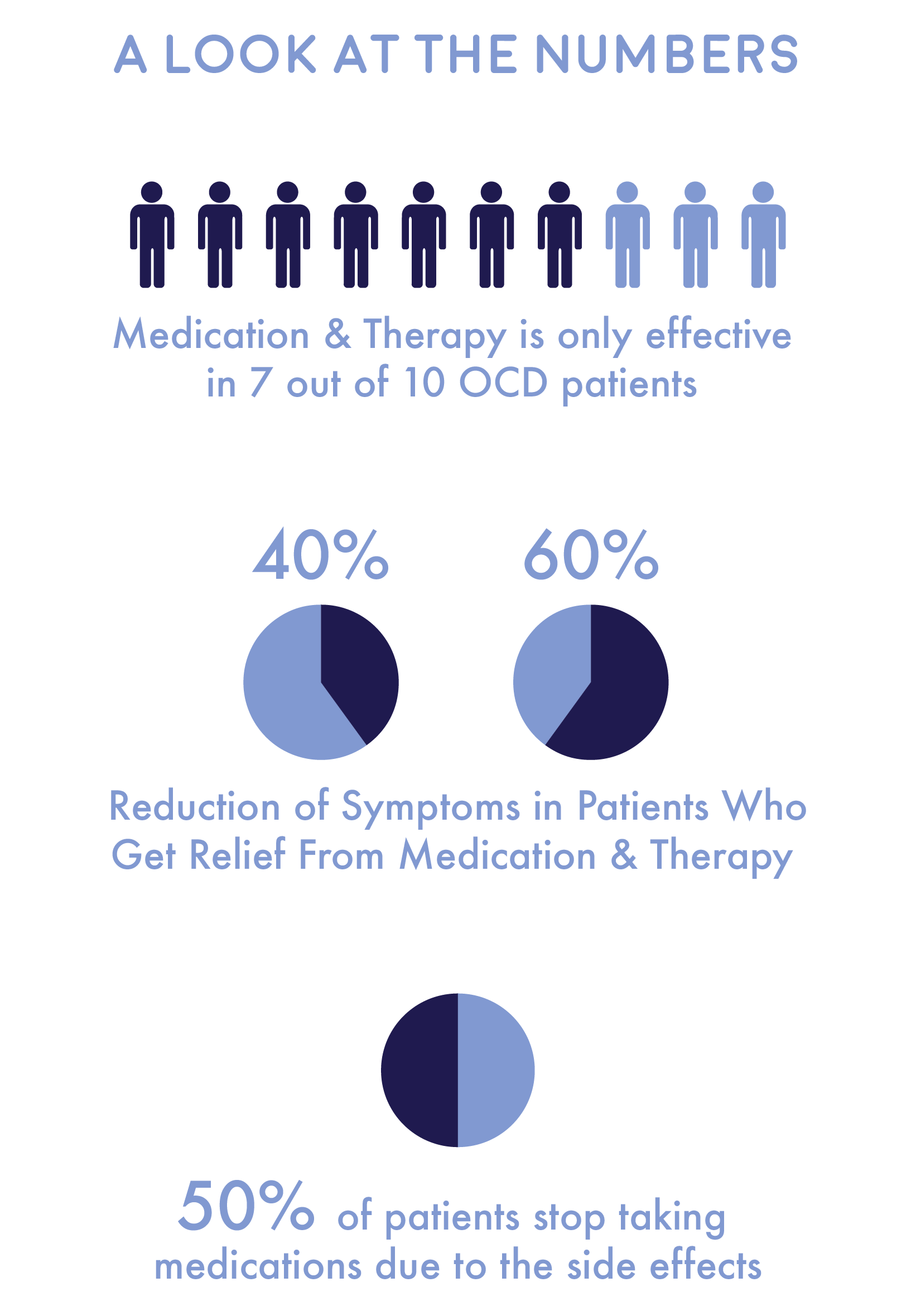Our Blog
The AI Breakthrough That's Slashing OCD Treatment Timelines
Mrinal Subhash • Oct 20, 2024
8 min read
Revolutionizing Treatment for Obsessive-Compulsive Disorder (OCD) with AI
Imagine being compelled to wash your hands fifty times a day or to repeatedly check if the door is locked, despite having just confirmed it. For millions living with Obsessive-Compulsive Disorder (OCD), these are not mere habits but an overwhelming reality. OCD is far from a simple eccentricity; it is a profound mental health condition capable of overshadowing one’s life.
The journey to uncover effective treatments for OCD has been arduous and expensive. Traditional drug development is a painstaking process, often spanning over a decade before a new medication becomes available. But what if we could revolutionize this timeline, reducing years to mere months? Enter Artificial Intelligence (AI)—a transformative force poised to revolutionize the fight against OCD.

Image Source: Black and white photograph of a medical professional reviewing a patient’s X-ray, symbolizing the intersection of healthcare and technology. This image is used to highlight the role of advanced diagnostics in modern medical practice. Source: Pinterest
OCD: A Closer Examination of the Struggle
OCD affects approximately 1-2% of the global population, but these statistics fail to capture the full extent of the struggle. Many sufferers remain undiagnosed or misunderstood, forced to endure the relentless cycle of obsessions and compulsions in silence. While cognitive-behavioral therapy (CBT) and medications offer relief, these treatments are not universally effective. For some, these interventions fall short, and the wait for novel, more potent treatments can feel interminable.
However, the era of waiting may soon be over. Thanks to AI, the drug discovery process is undergoing a monumental transformation.

Image Source: Photograph illustrating the distressing cycle of obsessions and compulsions commonly experienced by individuals with Obsessive-Compulsive Disorder (OCD). The image serves as a visual representation of the challenges faced by those living with OCD, highlighting the importance of effective treatment strategies. Source: Pulse TMS
How AI is Transforming Drug Discovery
AI is not merely a buzzword; it is a potent tool that is redefining the landscape of drug discovery. Traditionally, the creation of new drugs involves considerable guesswork, trial and error, and exhaustive research. It’s akin to searching for a needle in a haystack, with the added challenge of the needle continually shifting position.
This is where AI excels. By processing vast amounts of data, AI can identify promising drug candidates with unprecedented speed. It can design novel molecules, predict their interactions within the body, and anticipate potential side effects—all in a fraction of the time that traditional methods require.
The Journey of DSP-1181: AI in Action
Let’s delve into the rapid development of DSP-1181, made possible by AI. The conventional process usually involves:
- Molecule Design: AI can generate thousands of potential drug molecules in an instant. For DSP-1181, AI created molecules specifically targeted to treat OCD, optimizing them for efficacy and safety.
- Production Optimization: Producing these molecules is a complex task, but AI streamlines the process by determining the most efficient synthesis methods, saving both time and money.
- Predicting Success: Before a drug reaches human trials, it undergoes rigorous testing. AI predicts a drug's behavior, significantly lowering the risk of failure during costly clinical trials.
The initiation of a Phase 1 clinical study in Japan for DSP-1181 was announced in January 2020. DSP-1181 is a full serotonin 5-HT1a receptor agonist, discovered through a collaboration between Exscientia and Sumitomo Dainippon Pharma. This drug is currently under investigation as a treatment for obsessive-compulsive disorder (OCD).
Interestingly, only three drug molecules are specifically claimed in US Patent 10800755, which is one of the two grantedpatents in the DSP-1181 family. Structural analysis revealed that all claimed molecules (Examples 1, 8, and 11) share a shape similar to haloperidol, a first-generation (typical) antipsychotic agent approved by the FDA in 1967. Although antipsychotics like haloperidol are not FDA-approved for treating OCD, they have been used with some success in augmenting selective serotonin reuptake inhibitors (SSRIs) in OCD patients.

Image Source: Diagram illustrating the rapid identification and optimization of drug candidates through AI-driven methodologies. This image underscores the transformative impact of AI in streamlining the drug discovery process, enabling the swift development of effective treatments. Source: Exscientia Blog
Why AI-Driven Drug Discovery is Revolutionary
The success of DSP-1181 extends beyond those affected by OCD—it has implications for the broader medical community. Here’s why:
- Accelerated Timeline: AI dramatically reduces the time required to discover and develop new drugs from years to months, granting patients quicker access to life-altering treatments.
- Cost Efficiency: By minimizing the number of failed trials, AI saves pharmaceutical companies millions, potentially leading to lower costs for patients.
- Global Accessibility: Faster development means treatments can be brought to international markets more swiftly, enabling quicker access to new therapies worldwide.
- Precision Medicine: AI is not just about speed; it’s about precision. AI enables the development of drugs that are more accurately tailored to specific conditions, potentially reducing side effects and enhancing overall efficacy.
- Innovation Catalyst: The success of AI in creating treatments for OCD is opening new avenues for addressing other complex mental health challenges. The future of mental health care is poised for exciting innovations.
The Road Ahead: A New Dawn for OCD Patients
For individuals living with OCD, the impact of AI-driven drug discovery is profound. The prospect of faster access to new treatments means that the relentless grip of obsessions and compulsions could soon be alleviated. Traditional treatment methods, such as medication and therapy, have been only effective in about 70% of OCD patients, leaving a significant portion of sufferers without adequate relief. Even among those who do respond to these treatments, 40% still experience persistent symptoms, and a staggering 50% of patients discontinue their medications due to adverse side effects.
These statistics highlight the urgent need for more effective, personalized treatments—a need that AI is well-positioned to fulfill. By leveraging AI's ability to design targeted molecules and optimize drug development processes, we stand on the brink of a revolution in mental health care. AI offers a new level of hope, providing the possibility of treatments that are not only faster to develop but also more precisely tailored to the needs of each patient.
Yet, this is only the beginning. As AI continues to evolve, its influence on mental health treatment will expand. Imagine a world where mental health conditions like OCD are treated with the same precision and effectiveness as any physical ailment. With AI leading the charge, that future is within reach.

Image Source: Diagram showcasing a collection of items, potentially highlighting various product categories or services. This image reflects the diverse offerings or elements related to the company's portfolio. Source: Pulse TMS
The Future is Now
The integration of AI into drug discovery is more than an advancement; it’s a revolution. For conditions like OCD, where time is of the essence, AI provides a lifeline, accelerating the development of new treatments and making them available to those who need them most. The limitations of traditional methods—such as the 50% discontinuation rate due to side effects—underscore the importance of this technological leap.
As we stand at the threshold of this new era in mental health treatment, staying informed and engaged is essential. The promise of AI extends beyond faster drug development; it lies in the potential to transform lives. Let us embrace this change and anticipate a future where the challenges of OCD and other mental health conditions are met head-on, with technology as our ally.
Join the Conversation
If you found this article compelling, share it with others. Let’s spread the word about how AI is revolutionizing mental health treatment, offering renewed hope to those who need it most.

Mrinal Subhash
Bioinformatics Specialist @CellStrat
After completing my Bachelor's in Electronics and Instrumentation, I pursued my Master's in Bioinformatics, at Northeastern University which gave me the exposure to apply my coding knowledge in the Biotech space. Post that, I have worked in a couple of startups in India as an AI/ ML engineer and I have obtained skills in several programming languages that can make me a valuable contribution to the AI community.
